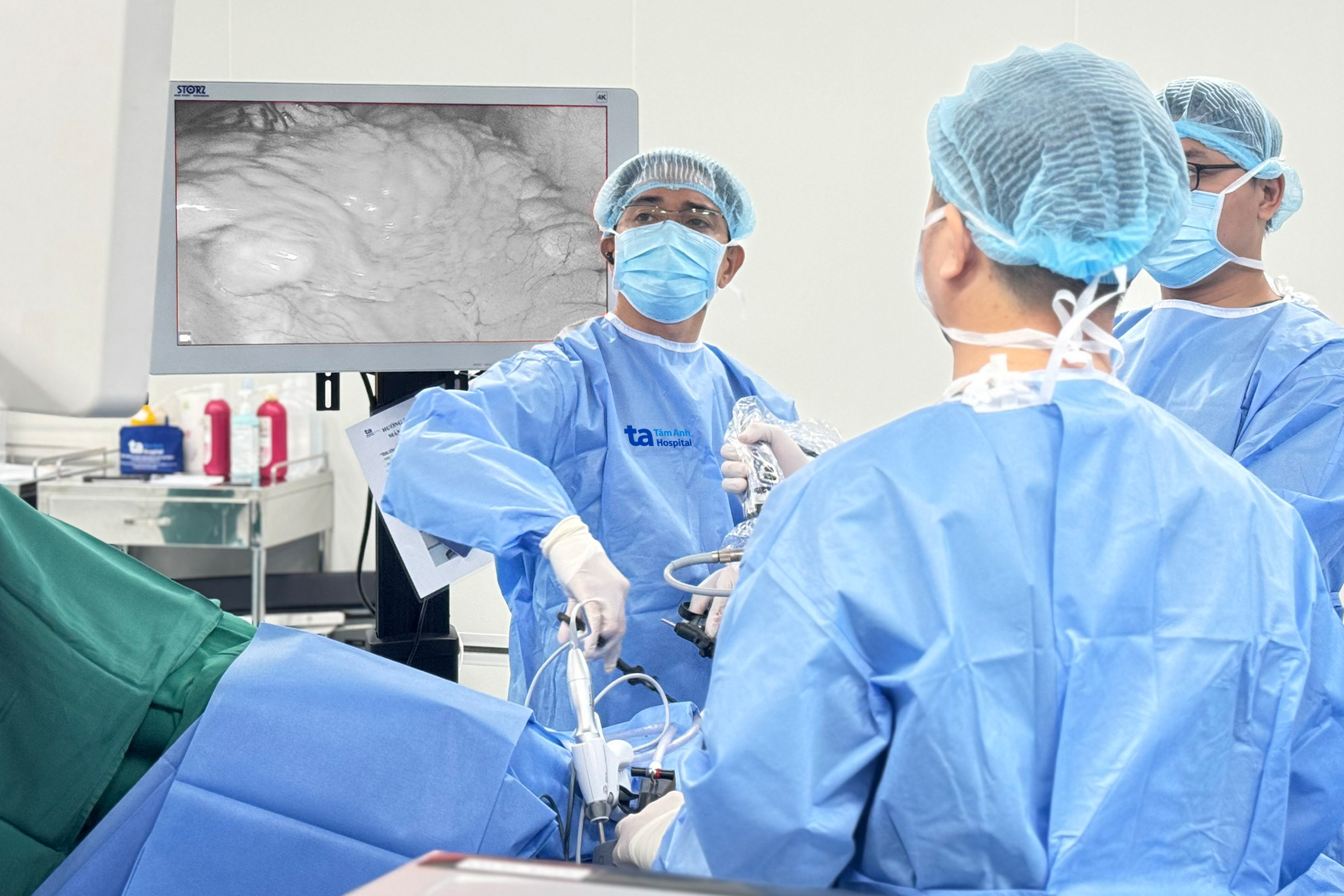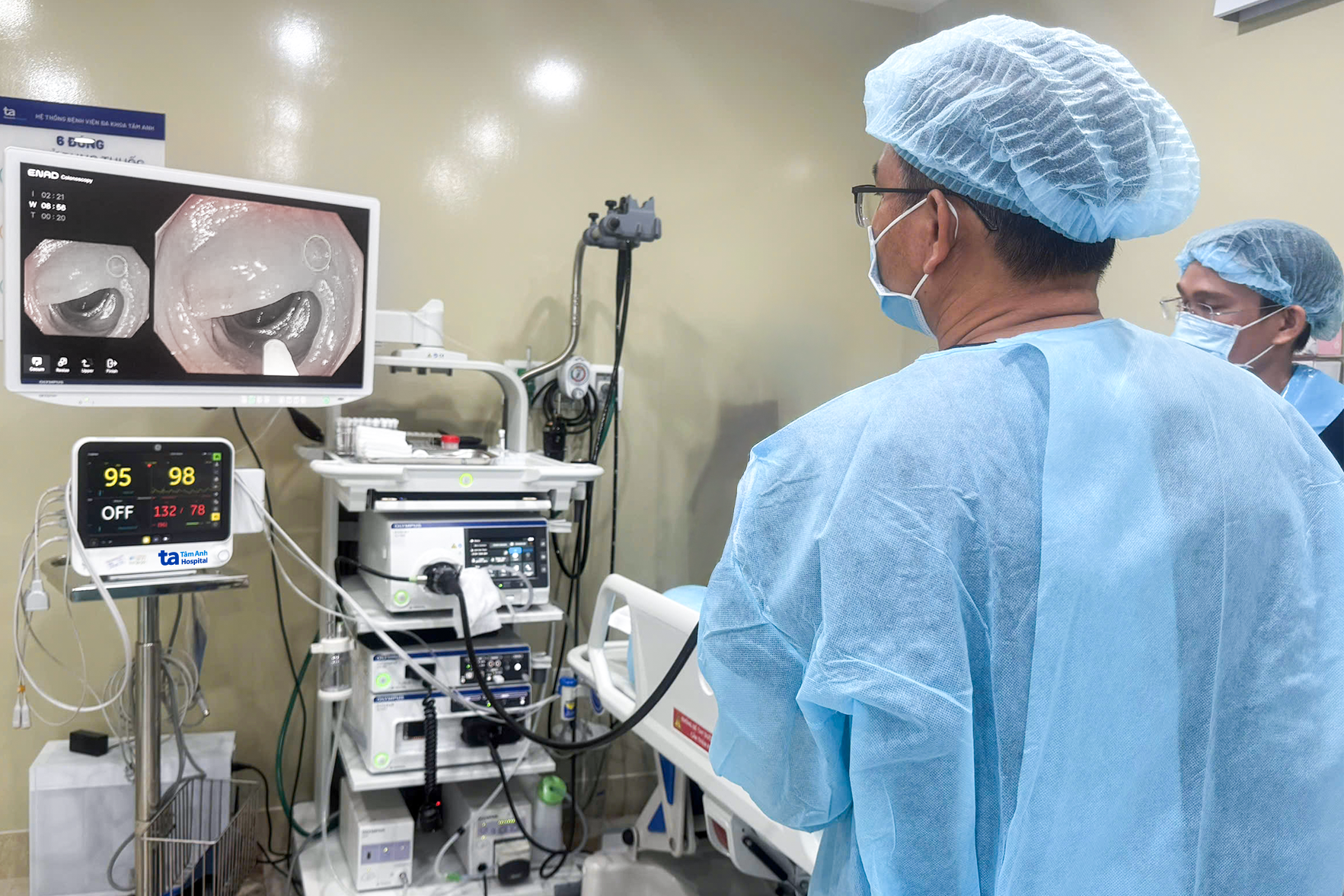Tham's gastroscopy revealed moderate diffuse congestion of the gastric mucosa, atrophic gastritis, nodular gastritis, and a biopsy confirmed adenocarcinoma. Dr. Nguyen Quoc Thai, Head of the Department of Gastrointestinal Surgery at the Endoscopy and Laparoscopic Gastrointestinal Surgery Center, Tam Anh General Hospital, TP HCM, recommended a non-typical laparoscopic gastrectomy (tumor resection).
The doctor performed a transgastric resection, preserving the stomach while completely removing the tumor and surrounding lymph nodes guided by ICG markers. Post-resection, frozen sections of the tumor and lymph nodes were analyzed, yielding negative results within 30-60 minutes, confirming complete removal of cancerous cells. Tham recovered well, transitioned to a liquid diet, and was discharged two days post-surgery for regular follow-up appointments.
According to Dr. Thai, many people mistakenly believe that surgery can rupture tumors, releasing cancer cells into the bloodstream or lymphatic system, accelerating metastasis, leading them to delay treatment. This misconception not only worsens the prognosis but also allows the disease to progress, metastasize, and become more challenging to treat.
Early detection, as in Tham's case, significantly improves treatment outcomes. Since the cancer cells had not yet invaded surrounding tissues, complete surgical removal and stomach preservation were possible. When tumors are small and localized, without metastasis, complete resection offers a favorable prognosis.
 |
Dr. Quoc Thai (near the screen) performing a laparoscopic surgery. Photo: *Tam Anh General Hospital* |
For early-stage cancers, endoscopic mucosal resection (EMR) or endoscopic submucosal dissection (ESD) can be performed to remove the tumor, test for H. pylori bacteria, and conduct cytological biopsies. These minimally invasive procedures allow for complete treatment while preserving the digestive system's anatomical structure and minimizing recovery time.
 |
Endoscopy allows doctors to detect and treat early lesions in the digestive tract. Photo: *Tam Anh General Hospital* |
Even in advanced stages, where large tumors compress adjacent organs, surgery to remove the tumor and relieve digestive tract compression can improve the quality of life for eligible patients. However, in advanced cases, surgery may be combined with chemotherapy to shrink the tumor beforehand or eliminate remaining cancer cells to enhance treatment efficacy and reduce recurrence risk. Doctors may also recommend combining surgery with other methods like chemotherapy, radiation therapy, targeted therapy, or immunotherapy for optimal results.
Quyen Phan
*The patient's name has been changed.
| Readers can submit questions about digestive diseases here for doctors to answer. |












